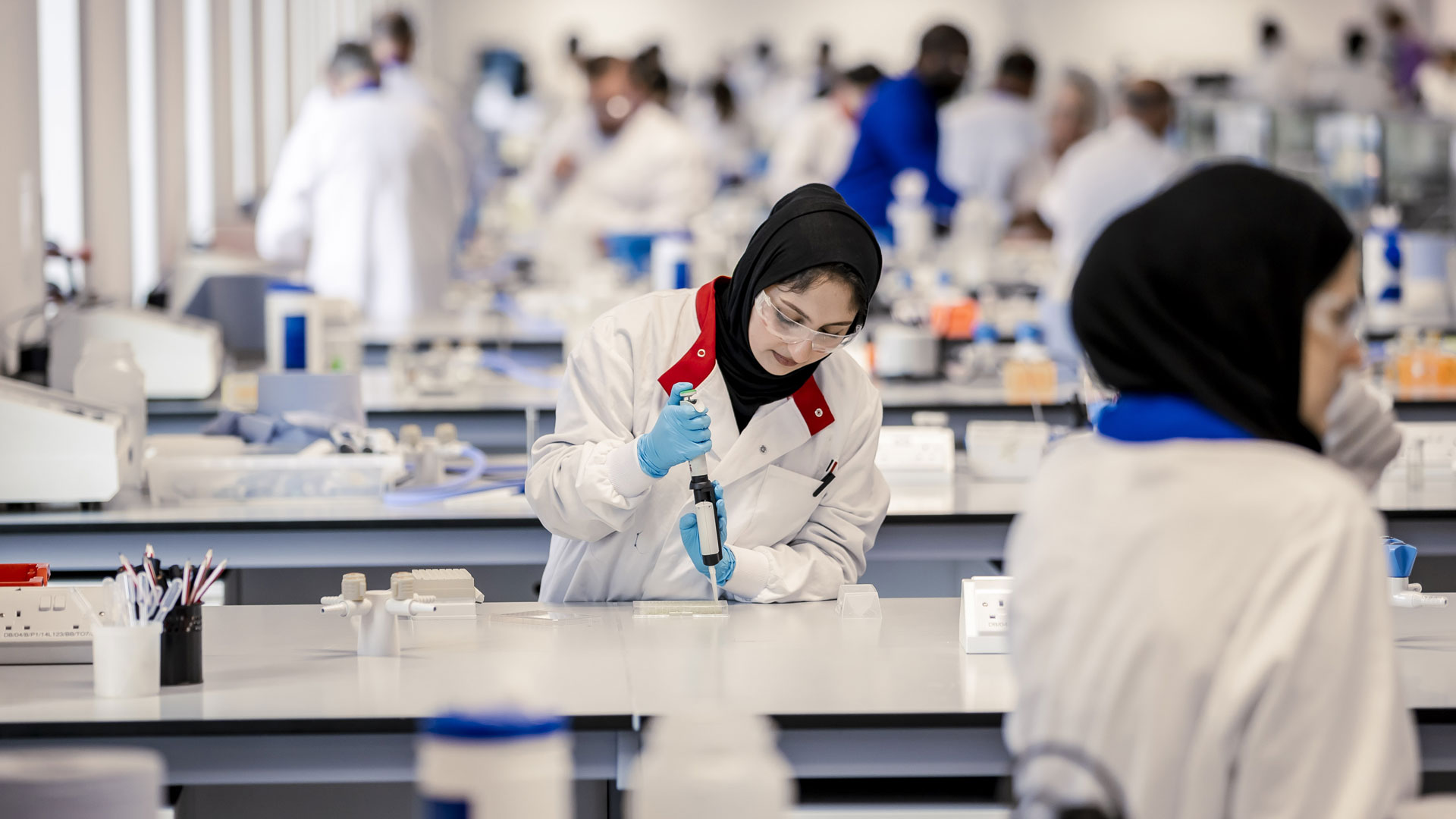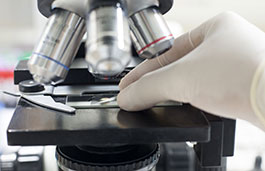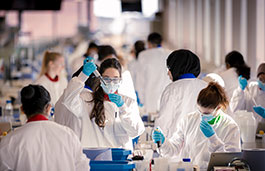Search
Pharmacology and Drug Discovery MSc
Study level: Postgraduate
Explore the core principles of translational pharmacology, from drug target identification to clinical treatment evaluation.
Year of entry
2025-26
Location
Coventry University (Coventry)
Study mode
Full-time
With Professional Placement
Duration
1 year full-time
Up to 2 years full-time with professional placement
Course code
EEST050
Start date
September 2025
November 2025
January 2026
March 2026
May 2026
July 2026
Course overview
This course is designed for you if you aspire to tackle real-world problems in academia or the pharmaceutical and healthcare industries — whether by developing new drugs and therapies, commercialising drug products or working in technical sales.
- This multidisciplinary degree focuses on the growing field of translational medicine, preparing you to apply scientific knowledge to experimental study design, data analysis, and regulatory processes in drug development and disease treatment.
- Gain contemporary theoretical knowledge and practical skills in pharmacology and drug discovery, covering content such as biotechnical innovations alongside classical clinical trial design and health-outcomes research.
- Through hands-on experience, apply your scientific knowledge to experimental study design, management and data analysis, while also developing an understanding of legislation and other regulatory procedures related to disease treatment.
- Core subject areas include cell and molecular biology, pharmacogenetics, protein biology, pharmacology, bioinformatics, numeracy, statistics, computing and a range of practical laboratory techniques.
5 QS Stars for Teaching and Facilities
QS Stars University RatingsRanked 9th Modern University in UK by the Times
The Times and Sunday Times Good University Guide 2025Ranked 8th for Overall Satisfaction in PTES
Postgraduate Taught Experience Survey (PTES) 2024Why you should study this course
- The course integrates the International Computer Driving Licence (ICDL) module Data Analytics. You will be awarded an ICDL certificate and electronic badge on successful completion of the course. This module aims to develop your data analysis skills including statistical analysis, summarisation, visualisation and develop proficiency in big data analysis.
- Learn from an academic team with extensive experience of laboratory research in pharmacology, physiology and molecular biology, as well as from experts at our Centre for Health and Life Sciences. (Staff are subject to change).
- Focus on developing your laboratory and scientific skills. Laboratory sessions form a substantial component of the learning experience, enabling you to learn key experimental techniques and develop essential experimental, data handling and reporting skills required in pharmacology and related careers.
- Gain practical experience and boost your CV with an additional professional placement. See the modules for more details.2
Our Award-winning Green Superlab
With space for over 250 students and packed full of industry-standard equipment, the Coventry University Superlab is an amazing place to learn, experiment and discover. Find out what we’re doing in our Superlab to make it greener and reduce our waste and carbon emissions.
What you'll study
Explore the fundamental principles of drug discovery, from drug target identification to critically evaluating clinical treatments. Gain hands-on experience in laboratory-based research and develop your proficiency in computer-aided techniques used in modern pharmacology. Develop skills and knowledge of the drug discovery process you can apply to your future career.
We regularly review our course content, to make it relevant and current for the benefit of our students. For these reasons, course modules may be updated.
How you'll learn
Teaching and learning methods may include:
- lectures
- seminars
- tutorials
- presentations
- group projects
- workshops
- practical laboratory sessions in Super Lab.
Teaching contact hours
As a full-time postgraduate student, you will study modules totalling 180 credits each academic year. A typical 30-credit module requires a total of 300 hours of study. Study hours are made up of teaching contact hours, and guided and independent study.
Teaching hours
Teaching hours may vary, depending on where you are in your studies, but on average you will have between 8 and 12 teaching and learning hours each week. You will also have the opportunity to attend optional sessions including time with a Success Coach or to meet with staff for advice and feedback.
Guided and independent study
Throughout your studies, you will be expected to spend time in guided and independent study to make up the required study hours per module. You will be digging deeper into topics, reviewing what you’ve learnt and completing assignments. This can be completed around your personal commitments. As you progress to the end of your studies, you’ll spend more time on independent learning.
Online learning
As an innovative university, we use different teaching methods, including online tools and emerging technologies. So, some of your teaching hours and assessments may be delivered online.
Assessment
This course will be assessed using a variety of methods which could vary depending on the module. Assessment methods may include:
- reports
- research proposals
- tests
- essays
- practical coursework
- assignments
- presentations.
The Coventry University assessment strategy aims to ensure that our courses are fairly assessed and allows us to monitor student progression towards achieving the intended learning outcomes.
Entry requirements
Fees and funding
| Student | Full-time | Part-time |
|---|---|---|
| UK, Ireland*, Channel Islands or Isle of Man | £11,200 £1,500 professional placement fee (if placement secured) |
Not available |
| EU | £11,200 per year with EU Support Bursary** £1,500 professional placement fee (if placement secured) per year with EU Support Bursary** £18,600 per year without EU Support Bursary** £1,800 professional placement fee (if placement secured) per year without EU Support Bursary** |
Not available |
| International | £18,600 £1,800 professional placement fee (if placement secured) |
Not available |
For advice and guidance on tuition fees3 and student loans visit our Postgraduate Finance page and see the university's Tuition Fee and Refund Terms and Conditions.
We offer a range of International scholarships to students all over the world. For more information, visit our International Scholarships page.
Tuition fees cover the cost of your teaching, assessments, facilities and support services. There may be additional costs not covered by this fee such as accommodation and living costs, recommended reading books, stationery, printing and re-assessments should you need them.
The following are additional costs not included in the tuition fees:
- Any optional overseas field trips or visits: £400+ per trip.
- Any costs associated with securing, attending or completing a placement (whether in the UK or abroad).
*Irish student fees
The rights of Irish residents to study in the UK are preserved under the Common Travel Area arrangement. If you are an Irish student and meet the residency criteria, you can study in England, pay the same level of tuition fees as English students and utilise the Tuition Fee Loan.
**EU Support Bursary
Following the UK's exit from the European Union, we are offering financial support to all eligible EU students who wish to study an undergraduate or a postgraduate degree with us full-time. This bursary will be used to offset the cost of your tuition fees to bring them in line with that of UK students. Students studying a degree with a foundation year with us are not eligible for the bursary.
Facilities
From day one, you'll step into a replicated professional environment at the Alison Gingell Building, where modern facilities allow you to apply your learning. You'll experience the Super Lab (Lab+), one of the UK's largest educational laboratories, capable of accommodating up to 250 students. Here, you'll work with the latest industry-standard equipment, gaining hands-on experience in pharmacology, microscopy, cell culture, haematology, DNA analysis, chemical analysis, and forensic testing. You'll also utilise METIman artificial human simulation, and explore computational biology, such as ligand docking experiments, within our dedicated PC workshop suites.

Lanchester Library
The library is usually open 24/7, in term-time. It’s where you can access your course’s specialist Academic Liaison Librarian. It’s also home to specialist teams which can support you with your academic writing and maths and statistics questions.

The Hub
The Hub is the centre of student life on campus. Facilities include a food court, convenience store, multi-faith centre, medical centre, hairdresser, coffee shops and the Your SU offices. It has fully licensed function spaces and a bar.

Careers and employability
Get one-on-one career and employability guidance lasting up to 36 months from the end of your course. We’ll help you find placements and graduate roles, offer CV and application checks, mentoring, skills workshops, employer events and more.
Facilities are subject to availability. Access to some facilities (including some teaching and learning spaces) may vary from those advertised and/or may have reduced availability or restrictions where the university is following public authority guidance, decisions or orders.
Careers and opportunities
Successful graduates may seek positions in:
- clinical trial coordination
- pharmacovigilance
- regulatory affairs
- scientist/senior scientist (in-vivo/in-vitro pharmacology)
- analytical and purification, drug discovery business development (drug discovery and development)
- computational drug discovery
- PhD research opportunities.
Where our graduates work
Successful graduates of this course have gone on to work for companies including global pharmaceutical and biotechnology companies, such as GSK and AstraZeneca, or have moved into academic research.
How to apply
You may also like

Biomedical Science MSc






